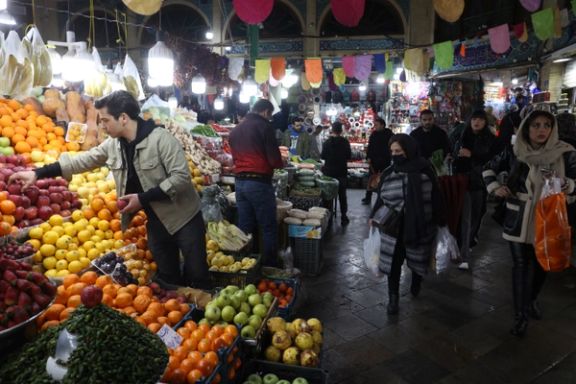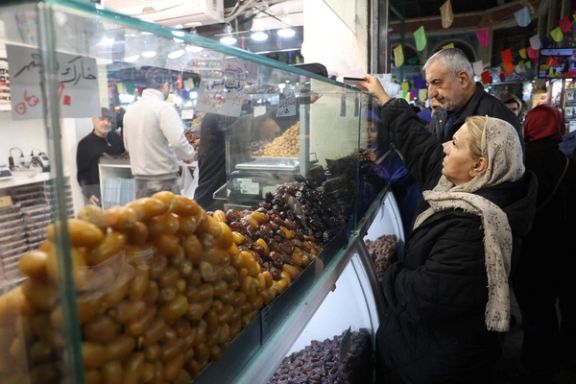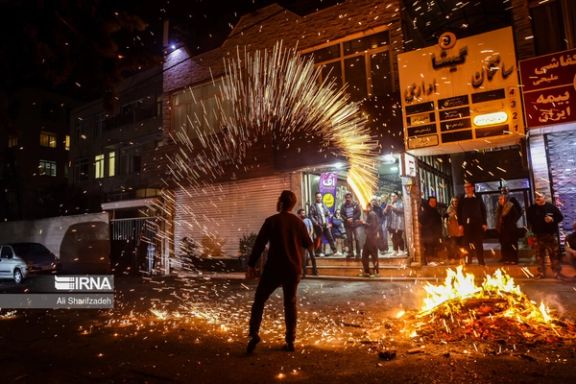Iran Eases Ramadan Restrictions, As It Coincides With Persian New Year

Authorities in Iran are relaxing Ramadan regulations this year as it coincides with the ancient and revered Persian New Year holidays – allowing restaurants to stay open.

Authorities in Iran are relaxing Ramadan regulations this year as it coincides with the ancient and revered Persian New Year holidays – allowing restaurants to stay open.
Restaurants and eateries, in the already struggling hospitality sector, will be allowed to maintain their usual operating hours to serve customers, the country’s police said.
However, there's a caveat: they must cover their windows to shield the interior from the view of fasting passersby.
The pre-Islamic Persian New Year or Nowruz has been celebrated in Iran for at least 2,500 years, marking the first day of Spring.
Women in the southern port city of Bushehr welcome Nowruz with song and dance.
The lunar Islamic year is shorter than the official solar calendar year, so this year, Ramadan, a month of fasting and reflection for Muslims, begins on March 11th in Iran, just nine days before Nowruz.
The last time these two occasions coincided was in the early 1990s.
While the exact rationale behind the authorities' decision to ease the rules remains uncertain, it comes at a time of unprecedented and widespread discontent with the country's religious regime.
Punitive Ramadan Rules Remain
Despite this year’s ease in regulations, Iranians, including those exempt from fasting, are required to abstain from eating, drinking, and smoking in public, even if they are inside their cars.
Implemented about 12 years after the 1979 Islamic Revolution, Article 638 of the country’s Islamic Penal Code exacts a punishment of 10 to 60 days or up to 74 lashes on those who violate Ramadan fasting regulations. This applies to everyone irrespective of their religion.

During Ramadan, eateries, including restaurants, cafes, and street food vendors, have typically been prohibited from serving customers from dawn to sunset, aligning with the fasting hours. This restriction has confined business hours to evenings exclusively – though in recent years, some establishments were allowed to provide cold food options or takeaway services during fasting hours.
In addition to the hospitality industry, Ramadan restrictions have a direct or indirect impact on various businesses including cinemas, concert halls, and beauty salons.
Some restaurants along the roads were permitted to remain open due to exemptions outlined in the country's Shia rules. These exemptions apply to individuals traveling approximately 45 kilometers away from home and intending to return within ten days, as well as to frequent travelers such as drivers, who are exempt from fasting.
Widespread Discontent, Economic Turmoil ?
At least 60 percent of eligible Iranian voters displayed their discontent with the regime and loss of hope in the government’s ability to improve their livelihoods when they boycotted the dual March 1st elections for Parliament and the Assembly of Experts.
Adding to that, the escalating depreciation of the national currency, soaring inflation reaching almost 50%, and discontent over social restrictions like hijab enforcement – the police seem to have eased their typically stringent Ramadan measures to prevent further unrest.
The hospitality and tourism sectors, along with various other industries, are grappling with the impact of high inflation, with little hope for improvement in the foreseeable future. Implementing stricter measures during their peak season could significantly disrupt their operations and profitability, at one of the busiest times of the year.

Nowruz Tradition Defies Hardliner Resistance
Religious hardliners in the Islamic Republic consider Nowruz and other ancient festivals pagan and favor the Islamic calendar and its holidays, but have not succeeded in changing Iran's ancient calendar to an Islamic one, so far.
Most Iranians – even those with strong Muslim beliefs – celebrate and cherish Nowruz and other pre-Islamic festivals such as Yalda which marks the Winter Solstice and Charshanbeh Souri bonfire night on the last Tuesday of the year as well as Islamic occasions such as the birthdays of the Prophet Muhammed and Shia imams.
The popularity of Nowruz among Iranians is so profound, that even the country’s ruler, Supreme Leader Ali Khamenei makes an annual live speech immediately after the Spring Equinox – a moment precisely calculated by astronomers.
Though, notably, Khamenei used last year’s remarks to claim that the recent anti-regime protests that swept Iran were part of a global conspiracy aimed at weakening the Islamic Republic.